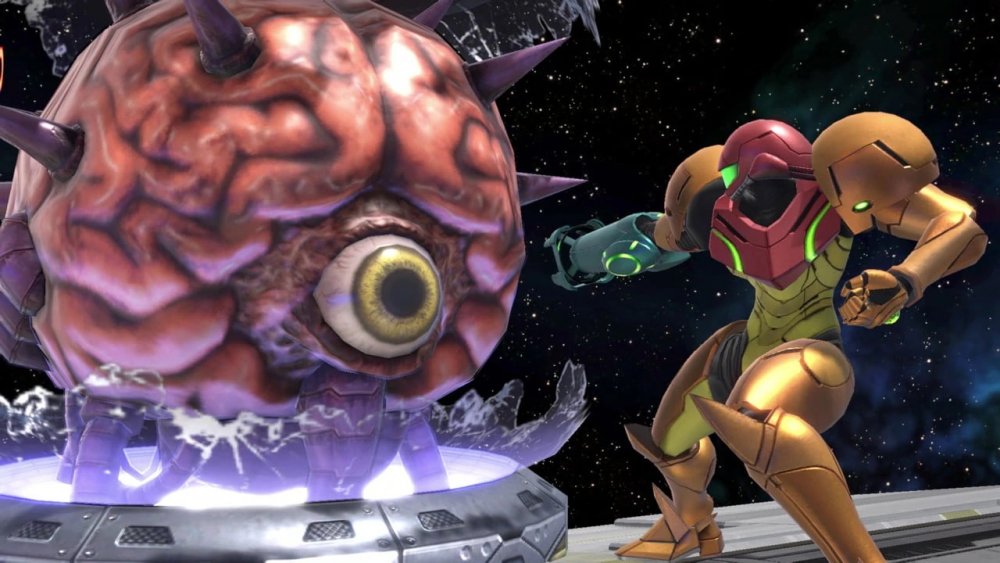This Mistake Changed Metroid Forever
Video games are an international business. Since developers want audiences who speak different languages to play their games, every video game needs to be translated to fit regional dialects. This is easier said than done because languages just don't follow the same rules. An errant mistranslation or syntax error could literally be the difference between a special sword attack reading as "Ogre Cutter" or "Rice Ball."
Case in point, the Metroid series was changed thanks to a mistranslation performed in its infancy. No, we aren't talking about how American game manuals accidentally refer to Samus with male pronouns instead of the original gender-neutral pronouns. Instead, this mistake was much more mundane and might escape notice from everyone except the most die-hard of Metroid fans. After all, it flew over the heads of the translators.
The Varia Suit was originally the Barrier Suit
Samus' Varia Suit is probably the most iconic and recognizable power armor suit in video game history. Even though it wasn't her first suit, it is the one most gamers associate with her. However, it was supposed to have a very different name. Sort of.
In the original Japanese game manual, the "Varia Suit" is called the "Barrier Suit." Why? Because it reduces damage by erecting a barrier. Very much on the nose, but that simplicity threw off translators because it directly described the suit's purpose. How do you say Barrier Suit in Japanese? Baria Sūtsu. It is literally the English words for "barrier" and "suit" written with Japanese kanji.
According to professional translator Clyde Mandelin, the translators may have assumed "Baria" was a made up word — just like "Metroid" is made up, albeit as a portmanteau of "metro subway" and "android". So, the translators probably ran with what they assumed to be a fictional lexicon and tweaked "Baria" to "Varia." And thus the Varia Suit was born, simply because the original creators didn't realize native English speakers couldn't tell the difference between a fictional Japanese word and an English word written in Japanese letters.


